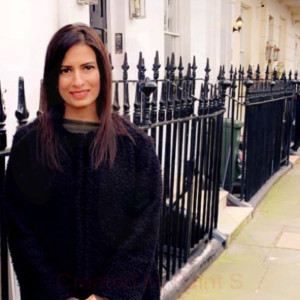Chapters
Now, a legitimate question: who has time to worry about politics? Daily life is tough enough without reaching far beyond one's sphere of personal influence. "They're gonna do what they're gonna do. Why should I care?" seems to be the prevailing sentiment. Though sensible on its surface, it is precisely the wrong position to take. For societies to function, they need:
- an informed public
- knowledgeable journalists
- engaged citizens
- targeted activism
- accountable leaders
- a corps of future decision-makers, well prepared to step into leadership roles
You see? You have many reasons to study A-Level Politics. You don't have to aspire towards a future as a politician. And you don't need to have grand political ideas or even a preference for any political party. Why? We'll start our discussion by answering this article's title. And then, we'll talk about some of the reasons you should choose A2 Politics.

Politics A-Level Edexcel Advanced Information
Choosing A-Level subjects is no lighthearted affair. Let's consider the psychology behind making these selections for a moment. How many 16-year-olds know what they want to do for the rest of their lives? Do they know which career they'll embrace - and are they certain that path will bring them fulfilment and success? That's a heavy lift for any teenager. Luckily, they have two reprieves.
First, the Advanced education structure is designed for maximum student flexibility. Year 11 allows students to select up to five subjects for Advanced study. Learners who know where they want to go in life can hone in on the subjects that will lead them to their career goals. Those less certain of their future direction can select a variety of disciplines to study. How should they make their selections?
UCAS provides course catalogues so students can get an idea of how they could benefit from offered courses. Advance Information papers are the Sixth Form equivalent. These documents go over exam information as well as general advice not related to the academic subject. Going further through this paper, we find sections detailing specifics for each of the exam's three sections.

Paper 1: UK Politics
The bulk of your first paper concerns political parties, election systems and participation in the democratic process in the UK. This exam challenges your knowledge of today's major political parties as well as emerging parties in our country. You'll also discuss what you know about our election systems.
Voting and the media is the fourth major topic addressed. In the UK, laws limiting political advertisement and campaign duration make it hard for candidates to get their message out. Often, people running for office promote their candidacy by giving interviews. Are the resulting soundbites and articles untainted by journalistic bias?
If it weren't for the core political ideas this paper also tests you on, that question would be the most intriguing. However, today's politics force a discussion on socialism and conservatism. You're expected to know about both of these ideologies' concepts and principles. You should describe the tensions inherent in these movements and describe some of their most prominent actors.
Paper 2: UK Government
In this paper, you'll drill down into how our government works. First, you'll discuss the constitution and how it assigns roles and powers to government agencies. Next, you'll explore Parliament and the legislative process. After that come questions about executive power and ministerial responsibility. Finally, you'll tie the whole of the UK government together by detailing their interactions.
All of those topics are fairly pedestrian. You can score well on this section simply by memorising information. The '-ism's this paper addresses, though. These non-core political concepts are thought-provoking and utterly relevant to our times.
What do you know about feminism, multiculturalism, ecologism, anarchism and nationalism? Maybe not much as you start Year 12. And the Advance Information paper specifies you only need to focus your research on one of these ideas. You'll write an essay on your findings during your exam. Which 'ism' will you choose?
Paper 3: US and Global Politics
Why would a UK student need to be well-versed in US politics? Partly for historical reasons but mainly because the US is such a powerful global player that its politics resonate around the world. You need to know how the US political machine is structured and how it works. You'll detail their founding documents and explain how they constrain each of the US's branches of government.
You'll further examine democratic participation in that country and discover special interest groups. It's especially fascinating to learn how those groups influence both politicians and the voting public! Finally, you'll outline the differences between US and UK politics.
This paper's second half is, by far, the most engaging. You'll explore human rights and environmental challenges, aspects of regionalism and different styles of governing. You'll also expose just how closely economics and political power are intertwined. More on that marriage a bit later.
As you can see, there is a lot more to Political Studies than training to become the country’s next prime minister. If you're open to big ideas, Politics and Government is interesting and relevant. Even if you don't think of yourself in those terms, you can credit the many students who find this information impactful and valuable.

The Advantages of taking A-Level Government and Politics
Politics teaches you analytical and critical thinking skills. These skills are useful to study a variety of subjects such as English Literature, Economics, Sociology, History and more. The ability to think critically is also rewarding for personal reasons. No matter which career path you take, critical thinking and problem-solving skills are in demand. And besides, you may find that Political Studies enhances the way you think in your everyday life.
Politics is particularly interesting to study alongside Economics A-Level. Did you know that many political and economic theories overlap? Nowhere is this clearer than when defining communism, socialism and capitalism. These terms describe political and economic theories. We might go so far as to say that these two subjects contextualise one another. We only need to consider the recent UK mini-budget debacle for proof.
And what about those who report on political and economic activity? Journalists have to understand how government works to report on it with authority. A reporter wouldn't know what questions to ask if they had no idea of government doings. Nor would they be able to communicate the implications of government moves if they had no clue how to see them in their context. Thus, this course is useful for those considering careers in media or journalism.
The course covers contemporary issues, too. You might not have an opinion on inequality, ecocide or the drumbeats of war. You're not to blame for that, of course. You have only a little life experience to shape any informed opinions. This is your chance to gain that needed exposure. In that sense, this A-Level could be as defining for you as the communication and culture A-Level was for me.
A-Level Government and Politics first introduces you to these concepts. And then, it guides you to form your own opinions concerning them. As you progress through the course, you will learn how to articulate your thoughts on such topics in writing and speech. Effective communication is an important skill to develop. It will serve you in every aspect of your civic and professional life.
Understanding politics expands your awareness of social justice issues. Inequality is rampant everywhere in the world, even in supposedly advanced societies. We see plenty of inequality in the UK alone! Think about economic inequality, racial inequality, gender inequality, and marriage inequality. And biases! Against immigrants, the elderly, the poor, the disenfranchised...
The sort of knowledge presented in A-Level politics is eye-opening. It will definitely broaden your worldview, as well as your community and personal perspectives. You will cover topics such as sexism, racism, immigration, ecology and environmentalism and political correctness, just to name a few.
In A-Level Politics, you'll regularly be asked to express your own opinions, in both written and oral formats. This will allow you to develop your ability to communicate clearly and concisely, using appropriate political vocabulary. As mentioned above, effective communication is vital to advance society. These skills are invaluable for any academic pursuit or career path. Studying politics is an excellent opportunity to develop and improve yours.
Is A-Level Politics Hard?
That depends on your definition of 'hard'. It's not hard in the sense that you have to memorise a lot of information, perform higher-level calculations or tease meaning out of ancient texts. It is hard to grasp just how far-reaching the subject of politics is, though. You may even find it hard to believe how decisions made by a small group of people affect the entire world. We'll cite one particularly dramatic example of such to make our point.
After the 1929 Stock Market crash and the ensuing Great Depression, US President Roosevelt signed the Banking Act into law. It separated private and investment banking - citizens trusting banks with their money, from the more speculative commercial banking. You might recall that the Great Depression was caused by speculation.
After the US recovered economically, industrialists started chipping away at the Banking Act. They said the Act restricted their right to generate profits. Over decades, the Act was dismantled piecemeal. President Clinton repealed the Act's final provision, the Glass-Steagall Act, in 1999. Less than ten years later, the world was plunged once again into a years-long economic downturn.
This example underscores the fact that learning about politics must encompass all aspects of civic participation. Though the Great Depression and 2008 downturn were economic phenomena, politics caused them. This example demonstrates that politics is a far-reaching discipline that incorporates every facet of life. Might it be hard to grasp politics' long reach? Yes, but it will definitely be worth it if you prepare well for your A-Levels.

Is Government and Politics a Good A-Level?
The personal is political. You may think that talking about politics is boring and that you don’t care that much about it. But everyone should be interested and informed about politics because it affects everyone. You may be surprised by the extent to which your personal views, experiences and everyday lives relate to political topics.
Unlike the previous query - is Politics hard, the question of this subject being good is not subjective. Being an informed citizen, understanding how politics work and communicating with authority are all objectively good qualities. But does the topic of politics make for a good academic study?
For the past several decades, young voters have sat elections out. That is really concerning because the policies enacted today will affect future generations the most. And we can't gloss over the fact that voting is, in fact, a privilege. Around the world, many are denied the right to political engagement. Doesn't that make you wonder why anyone would not exercise their right to participate in the political process if it's granted to them?
It is due, in large part, to a lack of education concerning politics and the importance of voting. Here, in the UK, we know firsthand how profoundly a vote can change an entire society. We've yet to see the full impact of Brexit. But we're already experiencing some of its more dramatic consequences.
When you learn about politics, you will also learn about the importance of being politically active. You'll be able to keep your friends and peers informed. You'll have the skills needed to consider profound matters and act on them.
Of course, it’s not one A-Level student’s responsibility to solve the world's problems. Or even to address the lack of young people’s participation in politics. But we desperately need fresh voices to talk about political issues and ignite discussions. Those who raise their voice should be knowledgeable and well-informed. So now that you know what to expect from this A-Level - and what you'll get out of it, prepare to become one of those voices!















